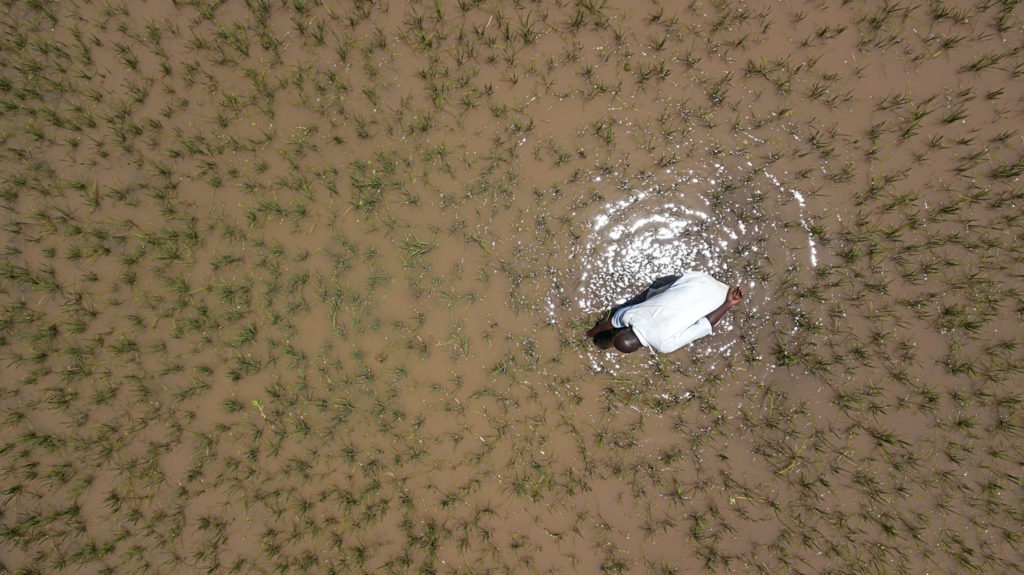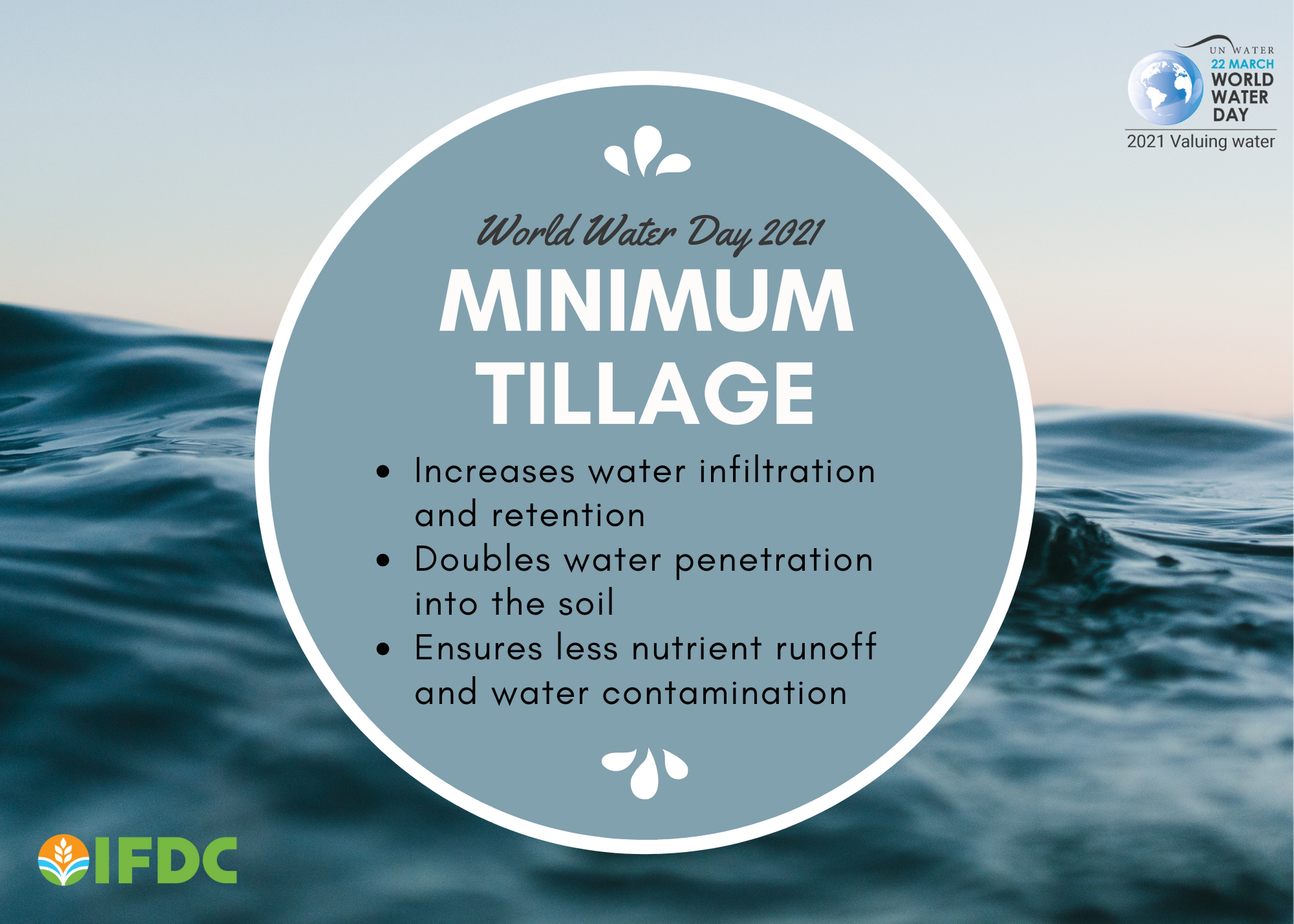
A blog for World Water Day 2021
Everyone needs water. Some farmers can grow plants without soil, but other farmers will go to great – and sometimes unscientific – lengths to find reliable water sources. Why? Because plants cannot grow without adequate water; therefore, we cannot survive without water.
The United Nations World Water Day theme for 2021 is “Valuing Water.” And really, it can all boil down to this statement: water for farmers is food for people. We need food. We need farmers. And we need to work together to ensure equitable access to clean water for all – especially our farmers. That is why IFDC is dedicated to establishing partnerships that promote the achievement of the Sustainable Development Goals, especially Goal 6 – Ensure availability and sustainable management of water and sanitation for all – and all the goals that interplay with it.
Less than 1% of the Earth’s water is accessible for human use. 70-80% of it is used for producing food.
Increasing water access is easy for us all to agree on, but it is becoming increasingly difficult to maintain sustainable water sources. Less than one percent of the Earth’s water is accessible for human use. Seventy to eighty percent of it is used for producing food. However, because of climate change and many other factors – some in our control, some not – many individuals around the world have little or no access to sustainable freshwater sources.
Dr. Upendra Singh, Deputy Director of Headquarters Research at IFDC, notes the role each of us plays in protecting Earth’s greatest resource, “On this World Water Day 2021, we are each reminded how crucial it is to value water. IFDC’s research programs are dedicated to conserving clean water for all, eliminating water runoff and contamination and mitigating greenhouse gas emissions. Without sustainable agricultural practices, we further limit the amount of water available for all. I urge everyone to consider what water means to you, and practice accordingly – whether that means using 4R principles to reduce nutrients runoff on the farm or being mindful of everyday water usage for chores. We all play a part.”





Since groundwater resources are depleting, IFDC staff teach farmers to use their water more efficiently. For example, in Bangladesh, groundwater use for agriculture has increased 63 percent since 1971, depleting natural stores for that nation. In a society where lowland rice farming comprises nearly all agricultural endeavors, farmers naturally require more water than normal, as they often must flood their paddies.
But farmers who use alternate wetting and drying (AWD) – an irrigation method developed by IRRI – generate more paddy rice, conserve water and experience enhanced nutrient efficiency and less insect infestation. Another technology, drip irrigation, is being used to increase water efficiency and curb dependence on rain for feeding crops.
In addition to AWD and drip irrigation, IFDC and its partners have researched and applied numerous ways to conserve water and limit pollution. Amongst the most effective of these techniques are terracing, minimum tillage, and the proper utilization of micronutrients.
Crop production is limited by the amount of water available. Technologies and practices such as terracing, minimum tillage, and micronutrients maximize water usage for yield increases. Terracing, the practice of sloping land into flat, step-like areas, reduces runoff and erosion, promotes positive interactions between water and fertilizer, and increases yields up to 52%. Low till and no-till land preparation increases water infiltration and retention, doubles water penetration, and ensures less water runoff and contamination in the soil. Finally, micronutrients, judiciously applied according to crop- and site-specific recommendations, can increase yields and cause plants to be resilient to drought and flooding.
When we talk about “valuing water,” we’re talking about its worth in our lives. Though we often take this resource for granted, what is it worth to you? What is it worth to the world? Well, we’d say conserving and protecting our water is worth the value of every life on earth. And if it’s that important, it’s worth investing in taking care of it. We can do better – for ourselves and for those to come.




